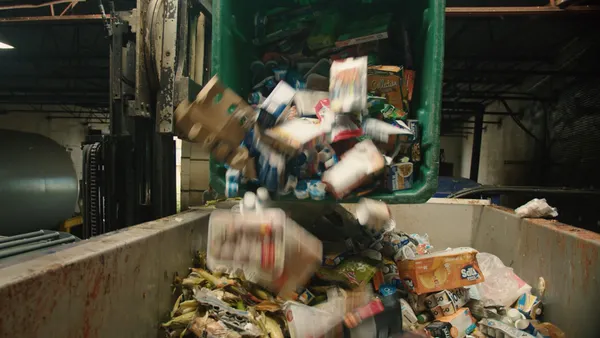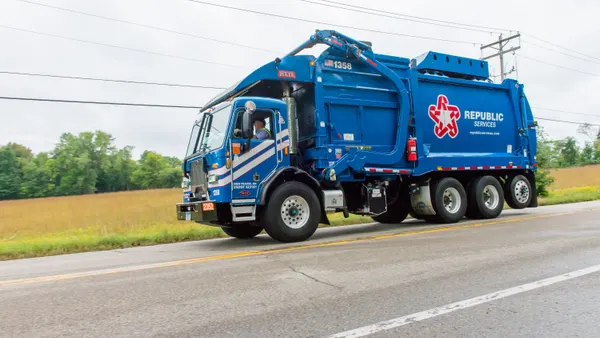UPDATE Jan. 24, 2018: Bars in Nashville will officially start recycling glass bottles along a famous downtown strip, as reported by the Tennessean. Mayor Megan Barry announced the official launch of the program Tuesday.
To jumpstart the “Honky Tonk Glass Recycling" program, which will expand to 20 bars this month, Nashville paid $416,000 for two trucks and $400,000 annually for six collection workers' salaries. Collections will occur twice daily and officials hope to expand to new locations in the future.
The city is still determining how to best reuse the collected glass, a decision that one official said would be easier to make once the city knows how much glass it can collect regularly. Currently, collected glass is sent to Jackson, TN to be converted to material for sandblasting, though Nashville officials hope the glass can be reused locally in the future to save on disposal costs — and possibly help create enough market demand to spur residential collection. Curbside glass recycling would carry an annual cost of $1 million, according to a 2015 proposal.
Dive Brief:
- Nashville, TN will spend more than $400,000 to start collecting glass bottles for recycling from downtown bars, according to Nashville Public Radio (NPR). This will also involve the purchase of new collection carts that can fit through the area's narrow back alleys.
- The program won't begin for at least two more months, but bars are already starting to sort their waste as practice. Bars in Nashville, a popular city for live music and tourism, may go through up to 1,500 glass bottles an hour on busy nights, according to NPR.
- After a summer audit showed more than a third of Nashville's waste was organic material, city officials have also added food scrap drop-off options to two existing recycling centers, also according to NPR. At one drop-off center, the food scrap bin was full within a week, a city official told NPR.
Dive Insight:
Music City has been making changes to its waste sector all year. Nashville targeted food waste earlier in the year by going after restaurants. City leaders also announced a plan in February to become the "greenest city in the Southeast" by targeting different sectors, including waste, and have passed a law making it more difficult to expand or develop new landfills. Giving residents a new opportunity to get engaged could also help with landfill diversion. Creating convenient drop-off centers for residents and requiring businesses to divert food waste are two strategies that, when taken together, could prove to be an effective way to cut down on the amount of organic waste going to landfills.
Glass recycling, however, is expensive — and that may be part of the reason why Nashville and many other cities don't currently take the material in curbside collection programs. However, the public writ large is beginning to anticipate and even expect glass recycling, which is, according to the Glass Recycling Coalition (GRC), a main factor behind cities offering glass recycling programs. The GRC found, however, that different players had different expectations for making glass recycling cheaper, with many respondents saying that packaging manufacturers should bear most of the cost for recycling glass.
Part of reducing that cost, for municipalities at least, has been switching to drop-off centers for glass recycling, which Nashville did in mid-2016. In piloting a new glass collections program, Nashville is taking on a new cost burden. However, this targeted approach may still result in savings by diverting waste from landfills. Nashville's Public Works division estimates that downtown businesses may be producing around 6,000 tons of waste per year. Because glass bottles are so prevalent, and so heavy, the new collection program could potentially cut that number in half.










